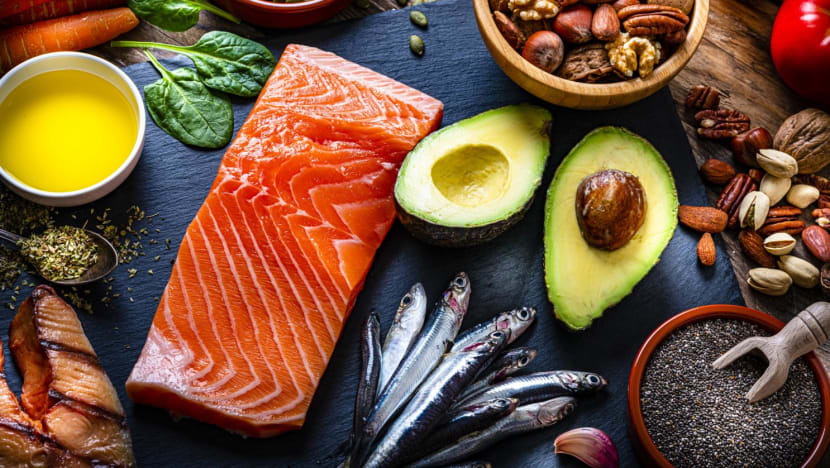Health
Research Explores Gut Microbiome of World’s Oldest Person

When Maria Branyas Morera passed away in 2024 at the impressive age of 117, she left behind more than just memories; she provided scientists with a unique opportunity to study her gut microbiome. Researchers from the University of Lincoln have delved into the samples collected from Branyas, revealing insights that could reshape our understanding of ageing and health.
The analysis, detailed in a recent publication in Cell Reports Medicine, marks one of the most thorough examinations of a supercentenarian’s health. Before her death, Branyas willingly participated in research aimed at uncovering the secrets behind her exceptional longevity. While her genetic makeup included protective variants against common diseases, the study highlighted her gut microbiome, a crucial area over which individuals have more control through diet and lifestyle choices.
The Role of Gut Microbiome in Ageing
The gut microbiome is a complex community of microorganisms, including bacteria and fungi, residing in our intestines. These microorganisms play vital roles in digestion, vitamin production, immune response, and even brain communication. As people age, their gut microbiomes typically lose diversity, which has been associated with frailty and declining health. However, Branyas’s microbiome told a different story.
Researchers discovered that her gut microbiome was remarkably diverse, comparable to that of a much younger individual. Notably, it was rich in Bifidobacteriaceae, a family of bacteria known for their health benefits. While this family often declines in older adults, Branyas maintained high levels, similar to reports from other centenarians. This diversity may have supported her immune and gut health, contributing to her long life.
Bifidobacteria are typically among the first microbes to colonise an infant’s gut and are beneficial throughout life. Numerous studies link these bacteria to enhanced immune function and protection against gastrointestinal disorders. Branyas’s daily consumption of three yoghurts, each containing live bacteria known to promote Bifidobacterium growth, along with her adherence to a Mediterranean diet, may explain her microbiome’s youthful characteristics.
Dietary Influences on Longevity
Branyas’s Mediterranean diet included foods that encourage the growth of beneficial bacteria, such as kefir, kombucha, and fermented vegetables like kimchi and sauerkraut. These foods contain probiotics—live bacteria that can settle in the gut and offer health advantages. However, probiotics require fuel to thrive, which is provided by prebiotics found in foods like onions, garlic, leeks, asparagus, bananas, oats, and legumes. Together, probiotics and prebiotics create a balanced microbiome.
While this research focused on a single individual, it does not claim that Branyas’s microbiome alone explains her longevity. Her remarkable lifespan is likely due to a combination of factors, including genetic advantages, metabolic efficiency, low inflammation, and, notably, a diverse gut microbiome.
Research into the microbiome is progressing rapidly, but no consensus exists on what constitutes the “ideal” microbiome. Although greater diversity generally correlates with improved health, there is no definitive recipe for longevity. Nonetheless, Branyas’s case reinforces the idea that nurturing a varied and beneficial microbiome is crucial for health and resilience.
Individuals may not have control over their genetic inheritance, but there are proactive steps to support gut microbes. Simple dietary changes, such as incorporating fermented foods like live yoghurts, kefir, kimchi, and sauerkraut, along with ample fruits, vegetables, legumes, and whole grains, can contribute to a healthier microbiome. Following a Mediterranean-style diet, characterised by a high intake of vegetables, fruits, whole grains, and healthy fats, has been repeatedly linked to both increased microbiome diversity and reduced disease risk.
While these habits may not guarantee a lifespan beyond 110, they are associated with lower risks of conditions such as cancer, type 2 diabetes, and cardiovascular disease. The life of Maria Branyas Morera serves as a reminder that longevity is a delicate interplay of genetics, lifestyle choices, and biological factors. Although not every aspect of life can be controlled, paying attention to gut microbiome health stands out as a significant step toward promoting lasting well-being.
Rachel Woods, a Senior Lecturer in Physiology at the University of Lincoln, contributed to this research, which underscores the importance of understanding the microbiome in the quest for healthy ageing.
-

 Business5 months ago
Business5 months agoKenvue Dismisses CEO Thibaut Mongon as Strategic Review Advances
-

 Lifestyle4 months ago
Lifestyle4 months agoHumanism Camp Engages 250 Youths in Summer Fest 2025
-

 Sports4 months ago
Sports4 months agoDe Minaur Triumphs at Washington Open After Thrilling Comeback
-

 Sports5 months ago
Sports5 months agoTupou and Daugunu Join First Nations Squad for Lions Clash
-

 Top Stories5 months ago
Top Stories5 months agoColombian Senator Miguel Uribe Shows Signs of Recovery After Attack
-

 World5 months ago
World5 months agoASEAN Gears Up for Historic Joint Meeting of Foreign and Economic Ministers
-

 Health4 months ago
Health4 months agoNew Study Challenges Assumptions About Aging and Inflammation
-

 Business5 months ago
Business5 months agoOil Prices Surge Following New EU Sanctions on Russia
-

 Entertainment4 months ago
Entertainment4 months agoDetaşe-Sabah Violin Ensemble Captivates at Gabala Music Festival
-

 Entertainment4 months ago
Entertainment4 months agoBaku Metro Extends Hours for Justin Timberlake Concert
-

 Top Stories5 months ago
Top Stories5 months agoRethinking Singapore’s F&B Regulations Amid Business Closures
-

 Business5 months ago
Business5 months agoU.S. House Approves Stablecoin Bill, Sends to Trump for Signature









